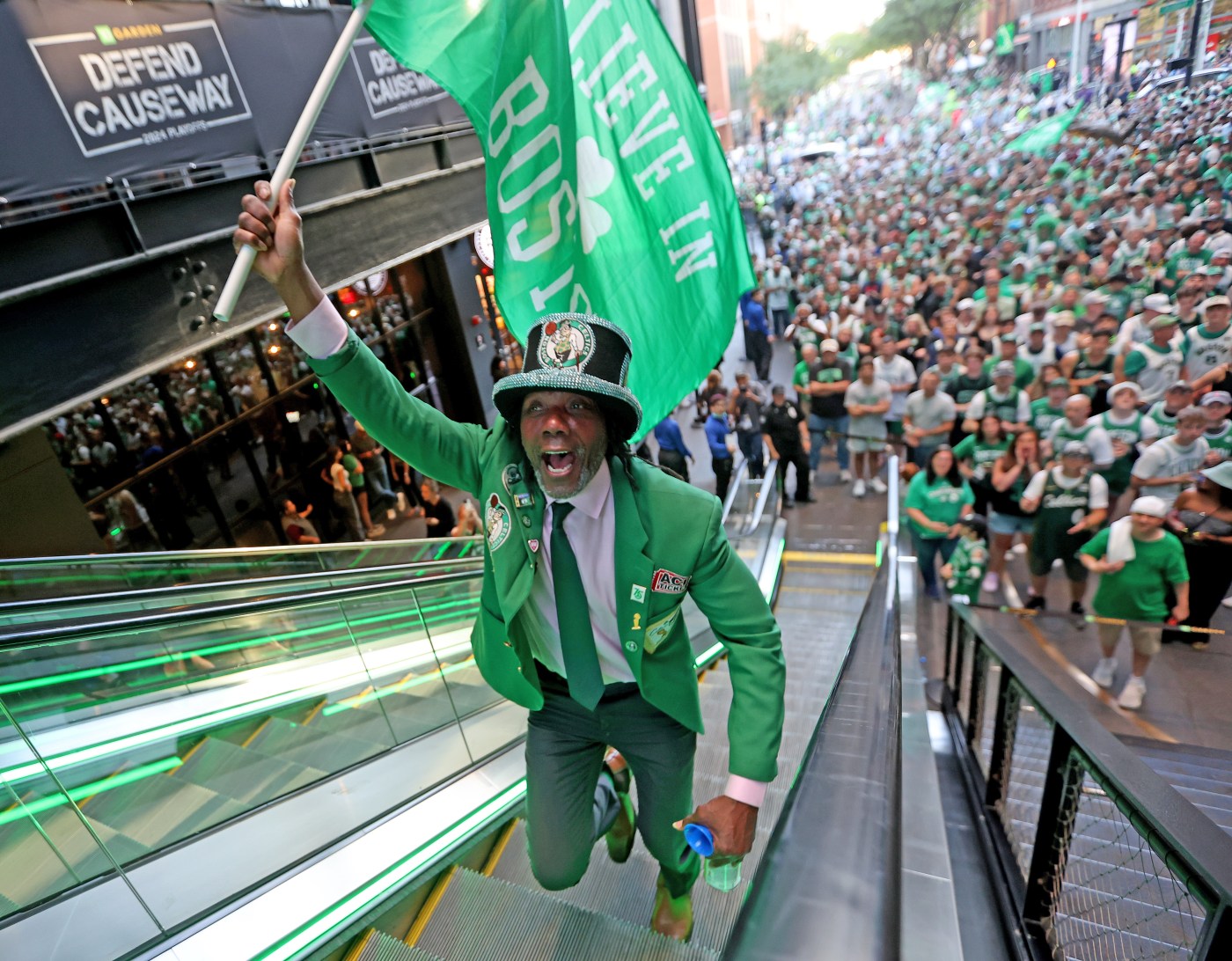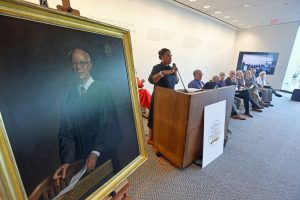
Boston Celtics’ win delivers boost to Boston’s economy
Brian Poe, owner of the Tip Tap Room in Beacon Hill, says businesses across Boston sorely needed a long championship run from the Bruins or Celtics.
The Black and Gold didn’t deliver, but the Green and White stepped up.
The run to clinching Banner 18 proved to be a godsend for Poe’s business, the chef told the Herald on Saturday, just 24 hours after the Celtics flooded the streets and his eatery with fans turning out for the Duck Boat rolling rally.
“It has been such a grind for us, small businesses,” Poe said. “It has been so inconsistent, but all of a sudden, you had a winning team, and they just had good energy, good attitudes.”
In the post-pandemic hybrid and remote work world, Poe said he has maintained steady business but has had to rely on people coming in on Tuesdays through Thursdays. The two extra months of Celtics basketball, however, changed that.
Poe, who opened the eatery in 2012, highlighted how 557 people came in last Monday for lunch and dinner ahead of Game 5, including visits from Bill Russell’s wife, Jeannine, and Kyrie Irving’s dad, Drederick.
That means patrons consistently packed his establishment, with a 165-person capacity, throughout the celebratory day.
On Friday, Poe opened Tip Tap Room at 10:30 in the morning, a half hour before the Duck Boats started rolling outside TD Garden, and he saw the same success as Monday.
“The numbers we got to watch during these playoff games, and the support that city, state, and people from all over the country gave (the Celtics), was amazing,” Poe said. “The whole area just came back to life.”
As visitors flocked to Causeway Street for the Finals, Boston’s business landscape surely reaped the reward. Each Finals game injected nearly $6 million into the local economy, said Martha Sheridan, CEO of Meet Boston, the region’s primary tourism bureau.
“As you get deeper into the rounds, the economic impact compounds, with more ‘visitors’ coming to TD Garden,” including league officials, national media, traveling fan bases, and folks from throughout the region and beyond, Sheridan told the Herald.
City hotels saw a “significant increase” in bookings throughout the playoffs, with occupancy in June running at or near 90% full, she said.
“We are a sports city, and sports tourism is really huge,” Sheridan said. “No one in Boston is complaining.”
Boston could look drastically different if not for the “amazing run” the Celtics, Patriots, Red Sox, and Bruins, have all been on this century. All four franchises have combined to win 13 championships since 2001.
“The Celtics’ enduring excellence is well documented,” Sheridan said, “and when you look at … the overall revitalization of the West End, it’s all anchored by a sports experience, and the Celtics’ decades of singular success in the NBA is a driving factor.”
Sheridan pointed to the creation of Lovejoy Wharf, a 15-story ultra-luxury, waterfront condominium development, steps from the Garden, and the Hub on Causeway, a $1.2 billion, 1.5-million square-foot mixed-use retail, office, hotel, and residential space.
Being knocked out of playoffs early could “deprive” businesses and the overall economy “of tens of millions of dollars,” Meet Boston’s vice president of strategic communications David O’Donnell told the Herald in April.
After getting out of work Friday, Gregory L. Stoller and a colleague celebrated the Celtics championship near Boston University, outside the parade route, and every bar and restaurant was standing room only.
The master lecturer at BU’s Questrom School of Business estimated the local economy saw a 20% bump from the parade alone.
Stoller said he believes the owners of each Boston sports franchise are doing what they can to invest in winning championships within the next three to four years, with the Celtics, of course, in the immediate future.
Stoller connected the openings of MGM Music Hall, a 5,000-seat four-story space next to Fenway Park, and Patriot Place in Foxboro, a 1.3-million-square-foot shopping, dining, and entertainment destination adjacent to Gillette Stadium, to the success of the Red Sox, Patriots, and Revolution. He then reflected on the growth in the West End.
“If you think about Causeway Street five years ago, and compare it to where it is now, it has gone through amazing revitalization efforts,” Stoller said. “As long as one of these teams – the Bruins or the Celtics – makes the playoffs, you’re not going to get a 20% impact in one day, but you’re going to get a continued economic boon because more and more people are not only going to go the game but they’re also going to stay afterward.”
Celtics fans were jacked up ahead of Game 1 of the NBA Finals at the TD Garden. (Matt Stone/Boston Herald)
Boston Celtics’ power forward Jayson Tatum holds an NBA finals trophy up to fans during the victory parade through downtown Boston to celebrate the team winning their 18th NBA championship on June 21, 2024 in BOSTON, MA. (Photo by Sophie Park/MediaNews Group/Boston Herald)

